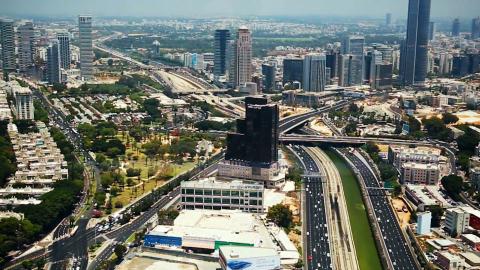
Iranians Chant 'Death to Israel', Threaten to Attack Tel Aviv to Avenge Soleimani’s Death
JERUSALEM, Israel – Iranians mourned the death of General Qassem Soleimani during his funeral procession Tuesday while massive crowds chanted “Death to Israel” and Iranian leaders hurled threats of revenge.
Iran has spent days mourning the powerful leader after he died in a United States airstrike reportedly aimed at deterring an imminent attack he was planning against US forces in the region. Iran's Supreme Leader Ayatollah Ali Khamenei told military leaders the country’s revenge must be direct, proportional and carried out by Iranian forces themselves.
Israel could get caught in the crosshairs of a confrontation between the US and Iran. The Jewish State is a long-standing foe of the regime and some Iranian officials have accused Israel of being a "co-conspirator" in Soleimani's death. Israeli officials are concerned Iran will target the Jewish State in its retaliation against the US by using one of its proxies in Syria, Lebanon, and the Gaza Strip.
Mohsen Rezaei, head of Iran’s Expediency Council and former chief of the Iranian Revolutionary Guards Corps, said on Sunday Iran will target Israel during a confrontation with the US.
"If Trump retaliates to Iran’s revenge, we will strike Haifa, Tel Aviv and wipe out Israel," said Rezaei.
Israeli Prime Minister Benjamin Netanyahu told Security Cabinet ministers Monday Israel is not responsible for Soleimani’s death and does not want to be pulled into a confrontation between Iran and the US, Axios reports.
“The killing of Soleimani is a US event, not an Israeli event, and we should stay out of it,” Netanyahu is quoted as saying according to two sources.
Netanyahu decided to cut short his visit to Greece and return to Israel on Friday after Soleimani was killed to monitor the situation from home. Defense Minister Naftali Bennett also held an emergency meeting at the IDF headquarters in Tel Aviv.
While Israelis are on high alert, many doubt Iran will follow through on its threats.
“A lot of the time, they are talking about (how) they are going to destroy Israel… but they are very careful not to do it,” Orna Mizrahi from Israel’s Institute for National Security Studies told AFP.
Attacking Israel would be “a great provocation which can cause a very large-scale military conflict with Israel. I don’t think this is what they would like now,” she added.
It is unclear if Hezbollah, a Lebanese-based Iranian proxy and one of Israel’s most dangerous neighbors, will attack the Jewish State.
Hezbollah chief Hassan Nasrallah said the US military would “pay the price” for Soleimani’s death and did not issue new threats against Israel.
“The only just punishment is (to target) American military presence in the region,” he said on Sunday.
Middle East experts are unsure how exactly America will pay the price for Soleimani’s killing.
Seth Frantzman, Author and Founder of the Middle East Center for Reporting, says Iran does not want to start a war and the country is not as powerful as it appears.
He argues in the National Review that Iran is “capable of spreading chaos” but it is no superpower.
The regime has proxies throughout the region at its disposal and thousands of rockets and missiles, “but it lacks much of the precision guidance that would make them a strategic threat to Israel.”
Instead, Frantzman believes Iran’s internal dissent has weakened the country and a war would mean the end of the regime.
“[Iran] thrives on threats. It judiciously uses attacks to harass and intimidate. But Iran does not want war. Iran’s regime knows that a major war will result in its collapse. Iran’s regime murdered 1,500 protesters in November precisely because they fear the rising anger of average people in Iran,” he explains.
“Where was the spontaneous outpouring of anger over Soleimani’s death? There were no million-man protests in Iraq, Syria, Lebanon, and Iran, of people rushing to the streets. They waited for the regime or their militia commanders to tell them how to protest. This is evidence that Iran’s role may be weakening and that even though it will respond, it must decide wisely how to do so.”




